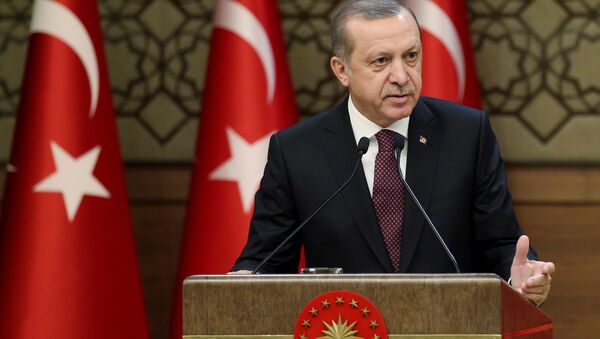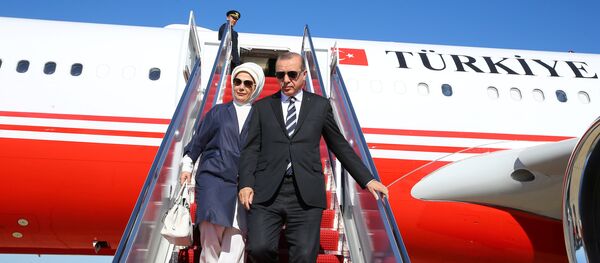Recep Tayyip Erdogan’s visit to the US comes against the backdrop of contradictions that have worsened between the two countries in connection with the recent decision of Donald Trump to arm the Syrian Kurds fighting against Daesh.
On the contrary, it is possible that the Americans will try to take revenge on Ankara for the Euphrates Shield operation, which was launched when US Vice President Joe Biden was visiting Turkey.
Celalettin Yavuz said that he has no great illusions about the upcoming Washington meeting between Erdogan and Trump.
“I do not think that after this meeting, the attitude of the Americans towards Kurdish groups of people's self-defense will change in any way. I believe that the US will continue to support them. Nor will, in my opinion, Washington's plans for an operation to free Raqqa change, which, perhaps, will begin in the coming days,” Yavuz said.
He noted that the operation may even begin during Erdogan's visit to the United States.
“Thus, in this way Washington may even take revenge on Ankara. The Americans remember very well that Euphrates Shield operation began at a time when US Vice President Joe Biden was in Turkey. That is, Americans can behave the same way,” the expert said.
It is possible that the Turkish side will put pressure on the US to stop supporting Syrian Kurds, the head of the Department of Eurasian Integration and Development at the SCO Institute of CIS countries, Vladimir Evseev, said.
“I believe that the Turkish side will insist on stopping the provision of US assistance to the Syrian Kurds, which is an element of bargaining for them, but the fact is that for the Americans on the ground there is no one to rely on for the Syrian Kurds,” Evseev said.
From this point of view, misunderstandings between Ankara and Washington will prevail both regarding the issue of US arms supplies to Syrian Kurds and on the issue of the release of Fethullah Gulen.
Since the attempted coup, approximately 50,000 people have been arrested and taken to court on suspicion of working in cahoots with or being supporters of cleric Fethullah Gulen. Suspects have ranged from judges and lawyers to journalists and even civilians.
Erdogan is expected to try and pressure Trump to agree to extradite the Pennsylvania-based Turkish cleric Fethullah Gulen.
“Americans will continue to sit on two chairs, in fact they will block the expansion of the buffer zone, which they are now controlling in Syria and which in fact is an occupation of the Syrian territory, but they cannot bet on Turkey or on the Syrian Kurds,” the expert noted.
In his opinion, this duality will lead to the fact that, firstly, instead of fighting with Daesh, the Syrian Kurds and pro-Turkish forces will fight with each other for control over the buffer zone.
Secondly, the expert feels that Washington will be in a vulnerable position and under these conditions it will need Russian support – in particular, in the liberation of Raqqa the “capital” of the self-proclaimed caliphate of Daesh.
Turkey, on the other hand, maintains that the SDF, largely made up of the People's Protection Units (YPG) and other Kurdish groups are affiliated with the Kurdistan Workers' Party, which Ankara views as a terrorist organization.
As a result, Turkey is fiercely opposed to anything that could empower the Kurds, including military support.





